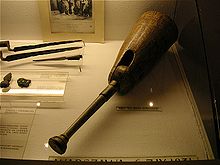
In Chelsea Crow’s “Roses and Wooden Legs” (ENGL 1101/1102 pg. 149), she explores how symbolism can enhance the reader’s connection to the character(s) and the story, it self. She compares, side by side, two short stories by Flannery O’Conner, author of “Good Country People” and William Faulkner, author of “A Rose for Emily”.
Crow offers her interpretation of the different symbols which the authors have used in their stories, like O’Conner’s use of symbolism focuses on ailments of the body. Crow poses that “Hulga’s poor eyesight and heart problems are symbols of her narrow-mindedness and spiritual struggle” (Crow). I can see and understand her thoughts on those symbols, but the wooden leg really stands out to me. How Hulga uses her wooded leg to keep space between her and people “she considers intellectually inferior” (Crow).
The other story that Crow compares for its symbolism, is William Faulkner’s story “A Rose for Emily”. I understand her interpretation of this story’s symbols, like the relation between the deterioration of Emily’s home and Emily’s own sanity over the years. Crow defines how Faulkner also incorporates Emily’s small southern town and the relationship between Emily’s house and her sanity. The house without care and repairs, through the years, has fallen into disrepair. Emily’s life without love and affection, other than that of her father, has caused the decay of her sanity.
Most of us have a part of our life which we could portray with symbols. Hulga hides her “miserable, wretched soul…..” (Crow), behind her wooden leg. While Emily, in her youth, is denied her rose by her father. “When one is unable to overcome misfortune, the world becomes a cruel place” (Crow). This is such a powerful and true statement. Sometimes life does bring misfortune and if you don’t find your inner strength to overcome, through your eyes your world will seem cruel.


